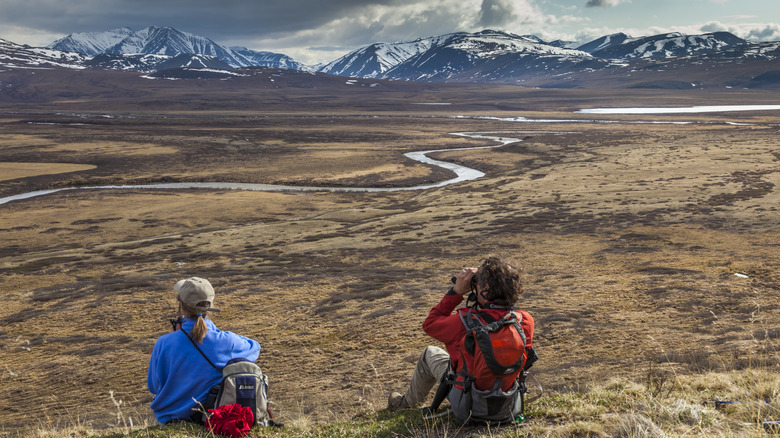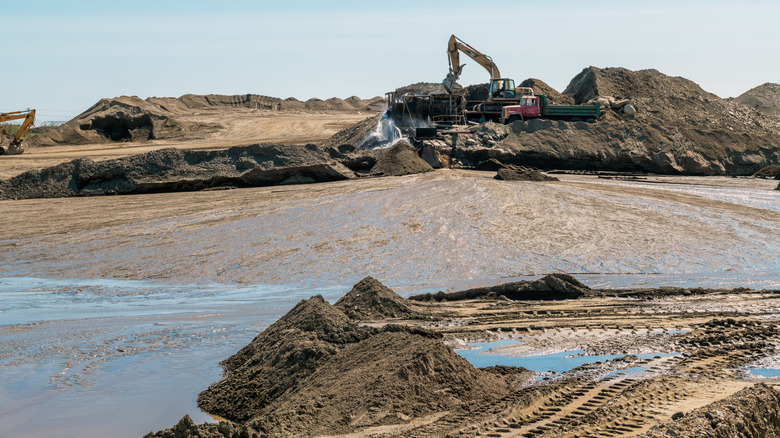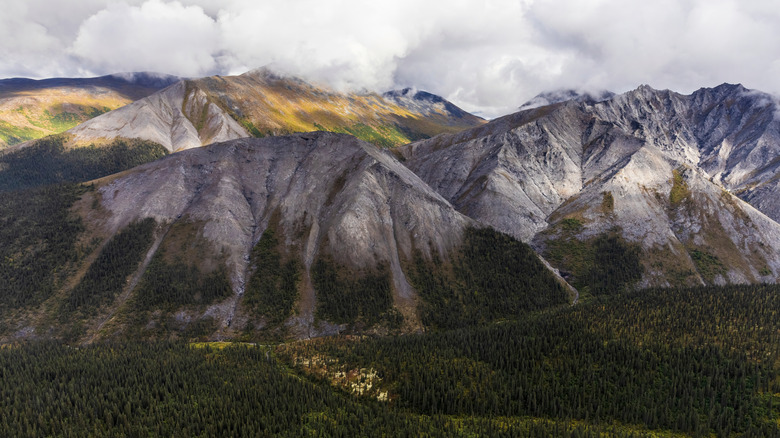This Alaskan National Park Will Never Be The Same After Trump's Ambler Road Mining Project
On October 6, 2025 the Trump administration announced an executive order approving the controversial Ambler Road Project. The proposed project is a private gravel road that will be used exclusively for industrial mining purposes. It will cut right through an awe-inspiring national park in Alaska — Gates of the Arctic National Park and Preserve, which is one of the must-see places in Alaska for first-time visitors. Environmentalists, conservationists, and hundreds of thousands of nature lovers are outraged. Those who are opposed to the plan argue that it will destroy some of the most pristine wilderness landscapes in the United States, threaten wildlife, and harm Native Alaskan communities that call the region home.
The Ambler region is rich in minerals like copper, silver, gold, lead, and cobalt that people in favor of the plan want to access. On the same day that Trump issued the executive order, Trilogy Metals Inc. announced that the United States Federal Government will invest $35.6 million into mining development and exploration in the Ambler Mining District. In exchange, the Federal Government will become a 10% shareholder of Trilogy Metals.
The Trump administration claims the road "is in the public interest given our need for access to domestic critical minerals," and that it will "unleash Alaska's extraordinary resource potential" through accessing the Ambler mining region, which is "vitally important to America's national defense and economic prosperity. Regardless of the project's outcome, it's likely that building a 211-mile road through the Alaskan wilderness will be challenging, expensive, and detrimental to the environment.
The Ambler Road's impact on Gates of the Arctic National Park and Preserve
Gates of the Arctic National Park is located north of the Arctic Circle. The majority of its 8,472,505 acres are designated wilderness with rugged mountains, deep valleys, pristine rivers, and breathtaking lakes. It's the second-largest and least-visited national park in the United States. When combined with its neighbors (Kobuk Valley National Park and Noatak National Preserve), it's one of the largest protected areas of land in the entire world. The proposed Ambler Road route cuts right through the southern section of the park.
The road is expected to disrupt one of the world's longest wildlife migration paths, which will further endanger animals that are already threatened, including the Western Caribou Arctic Herd. Tundra wetlands will be dammed in order to complete the road, and it will cross over 3,000 rivers and streams, including the Kobuk River, which is supposed to be protected under the National Wild and Scenic River Act, but has now been listed among America's Most Endangered Rivers of 2024 by the American Rivers organization. "With no road connections or industrial development, the river offers a rare glimpse into an almost primordial North American landscape. The proposed Ambler Road and associated mining development would cause irreparable harm to the Kobuk's water quality and fish and wildlife, threatening communities all along the river," the American Rivers website explains.
Native Alaska communities will also be impacted. The Indigenous communities depend on "subsistence food resources, including the caribou, sheefish, and salmon of Northwest Alaska," according to the Coalition to Protect America's National Parks. "If we build this road there will be no end to mining, only an end to our culture," said Shield Downey, the former First Chief of Ivisaappaat (Ambler) Tribal Council.
The Ambler Road Project has strong opposition
During Trump's first term, nine different groups sued his administration for approving the road, arguing that it violated the Clean Water Act, ANILCA, and NEPA — along with other laws. Alex Johnson, Alaska Program Manager for the National Parks Conservation Association, said that the administration had "disregarded the severe impacts that this billion-dollar private industrial mining road will have on national parklands, Alaska Native communities and one of our planet's last ecologically intact landscapes." In 2024, the Biden administration scrapped the project due environmental risks and public opposition.
Now, the Trump administration has overturned Biden's block, but the negative impacts of the Ambler Road Project haven't changed, according to the NPCA. "This order is so atrocious, it's nearly unbelievable," Jim Adams, Senior Alaska Director at the NPCA said in a statement published on the organization's website. Hundreds of thousands of Americans are opposed to the plan, per the NPCA. The Coalition to Protect America's National Parks reported that 135,000 people submitted comments during the Supplemental Environmental Impact Statement process and nearly all of them were opposed to the Ambler Road construction. During public hearings held in and around the Brooks Range, 82% of all comments were in opposition.
Jim Adams of NPCA says that the organization will keep trying to stop the project from happening. "We will continue to fight this with everything we have," he explained. "And so will our partners from across the country, including those who live closest to the region, its waterways, wildlife, and national parks that will be forever destroyed if this disastrous road moves forward. Before construction begins, the Bureau of Land Management (BLM) will need to perform additional environmental research. Environmental groups are expected to challenge the plan in court should it continue to move forward.


